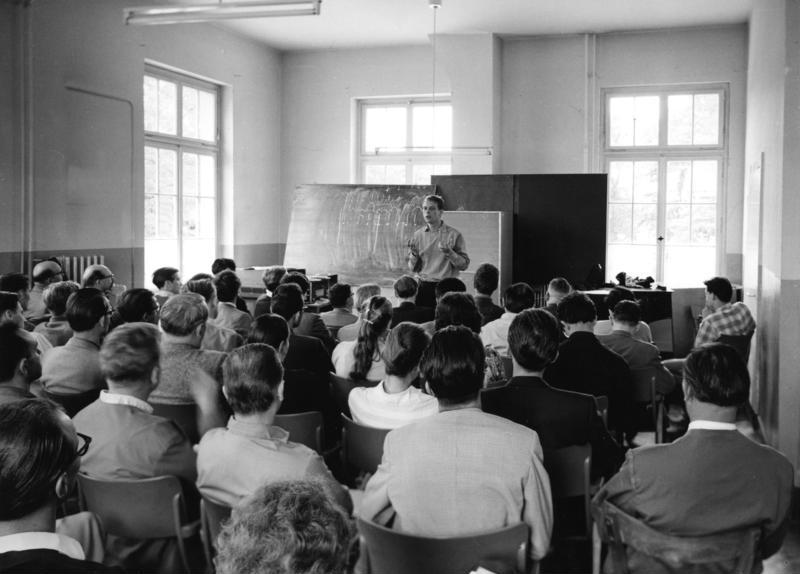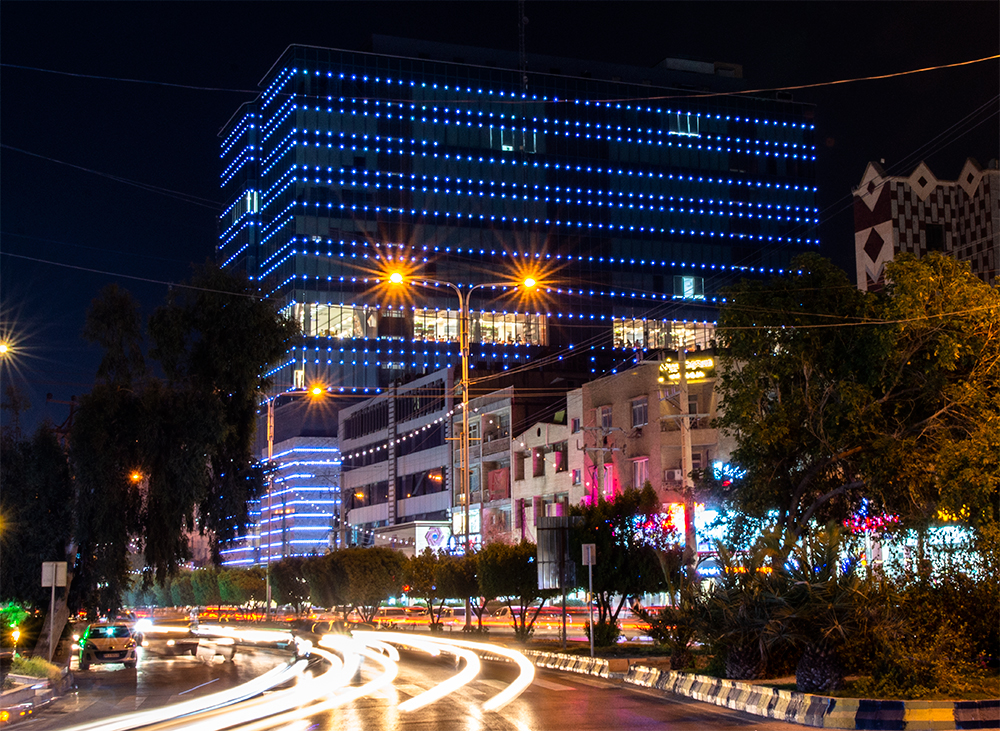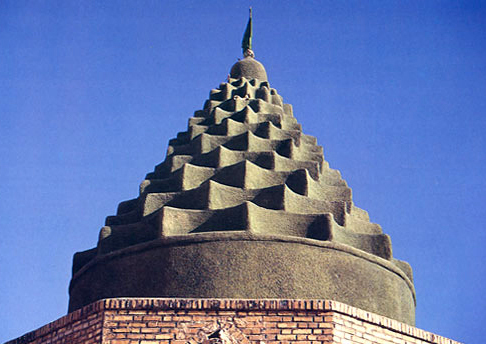|
Ali Ahmadifar
Ali Ahmadifar ( fa, علی احمدیفر, born 12 July 1976) is an Iranian composer, teacher and researcher. Book * Author of the book "Stylistics of Arvo Pärt music (Persian:سبک شناسی موسیقی آروو پارت)", published 2007. Works * "Where are you, o thou fairy?"(An Iranian variation) was performed by MDR Leipzig Radio Symphony Orchestra in 2006. * one of his works was performed by valid flute soloist Reza Najfar in 2008, Rasht. * "Minimove" (An Iranian variation for flute and strings) was performed by Camerata symphony orchestra led by Keyvan Mirhadi in 2008, Rasht. * "Bâng – e Robâb" was performed by the Avram ensemble in 2011. * Radio contemporary music program editor and writer in Iranian radio broadcast network culture, 1999-2000. * The founder and first conductor of Gilan sinfonietta orchestra and choir, performing concert at Vahdat Hall, September 2007. Lectures * Concepts and specification of Music * International Customary instruments and sy ... [...More Info...] [...Related Items...] OR: [Wikipedia] [Google] [Baidu] |
Tehran
Tehran (; fa, تهران ) is the largest city in Tehran Province and the capital of Iran. With a population of around 9 million in the city and around 16 million in the larger metropolitan area of Greater Tehran, Tehran is the most populous city in Iran and Western Asia, and has the second-largest metropolitan area in the Middle East, after Cairo. It is ranked 24th in the world by metropolitan area population. In the Classical era, part of the territory of present-day Tehran was occupied by Rhages, a prominent Median city destroyed in the medieval Arab, Turkic, and Mongol invasions. Modern Ray is an urban area absorbed into the metropolitan area of Greater Tehran. Tehran was first chosen as the capital of Iran by Agha Mohammad Khan of the Qajar dynasty in 1786, because of its proximity to Iran's territories in the Caucasus, then separated from Iran in the Russo-Iranian Wars, to avoid the vying factions of the previously ruling Iranian dynasties. The capital has been ... [...More Info...] [...Related Items...] OR: [Wikipedia] [Google] [Baidu] |
Aleatory Music
Aleatoric music (also aleatory music or chance music; from the Latin word ''alea'', meaning "dice") is music in which some element of the composition is left to chance, and/or some primary element of a composed work's realization is left to the determination of its performer(s). The term is most often associated with procedures in which the chance element involves a relatively limited number of possibilities. The term became known to European composers through lectures by acoustician Werner Meyer-Eppler at the Darmstadt International Summer Courses for New Music in the beginning of the 1950s. According to his definition, "a process is said to be aleatoric ... if its course is determined in general but depends on chance in detail". Through a confusion of Meyer-Eppler's German terms ''Aleatorik'' (noun) and ''aleatorisch'' (adjective), his translator created a new English word, "aleatoric" (rather than using the existing English adjective "aleatory"), which quickly became fashiona ... [...More Info...] [...Related Items...] OR: [Wikipedia] [Google] [Baidu] |
21st-century Classical Composers
The 1st century was the century spanning AD 1 (Roman numerals, I) through AD 100 (Roman numerals, C) according to the Julian calendar. It is often written as the or to distinguish it from the 1st century BC (or BCE) which preceded it. The 1st century is considered part of the Classical era, epoch, or History by period, historical period. The 1st century also saw the Christianity in the 1st century, appearance of Christianity. During this period, Europe, North Africa and the Near East fell under increasing domination by the Roman Empire, which continued expanding, most notably conquering Britain under the emperor Claudius (AD 43). The reforms introduced by Augustus during his long reign stabilized the empire after the turmoil of the previous century's civil wars. Later in the century the Julio-Claudian dynasty, which had been founded by Augustus, came to an end with the suicide of Nero in AD 68. There followed the famous Year of Four Emperors, a brief period of civil war and inst ... [...More Info...] [...Related Items...] OR: [Wikipedia] [Google] [Baidu] |
Contemporary Classical Composers
Contemporary history, in English-language historiography, is a subset of modern history that describes the historical period from approximately 1945 to the present. Contemporary history is either a subset of the late modern period, or it is one of the three major subsets of modern history, alongside the early modern period and the late modern period. In the social sciences, contemporary history is also continuous with, and related to, the rise of postmodernity. Contemporary history is politically dominated by the Cold War (1947–1991) between the Western Bloc, led by the United States, and the Eastern Bloc, led by the Soviet Union. The confrontation spurred fears of a nuclear war. An all-out "hot" war was avoided, but both sides intervened in the internal politics of smaller nations in their bid for global influence and via proxy wars. The Cold War ultimately ended with the Revolutions of 1989 and the dissolution of the Soviet Union in 1991. The latter stages and afterm ... [...More Info...] [...Related Items...] OR: [Wikipedia] [Google] [Baidu] |
Iranian Composers
Iranian may refer to: * Iran, a sovereign state * Iranian peoples, the speakers of the Iranian languages. The term Iranic peoples is also used for this term to distinguish the pan ethnic term from Iranian, used for the people of Iran * Iranian languages, a branch of the Indo-Iranian languages * Iranian diaspora, Iranian people living outside Iran * Iranian architecture, architecture of Iran and parts of the rest of West Asia * Iranian foods, list of Iranian foods and dishes * Iranian.com, also known as ''The Iranian'' and ''The Iranian Times'' See also * Persian (other) * Iranians (other) * Languages of Iran * Ethnicities in Iran * Demographics of Iran * Indo-Iranian languages * Irani (other) * List of Iranians This is an alphabetic list of notable people from Iran or its historical predecessors. In the news * Ali Khamenei, supreme leader of Iran * Ebrahim Raisi, president of Iran, former Chief Justice of Iran. * Hassan Rouhani, former president o ... [...More Info...] [...Related Items...] OR: [Wikipedia] [Google] [Baidu] |
1976 Births
Events January * January 3 – The International Covenant on Economic, Social and Cultural Rights enters into force. * January 5 – The Pol Pot regime proclaims a new constitution for Democratic Kampuchea. * January 11 – The 1976 Philadelphia Flyers–Red Army game results in a 4–1 victory for the National Hockey League's Philadelphia Flyers over HC CSKA Moscow of the Soviet Union. * January 16 – The trial against jailed members of the Red Army Faction (the West German extreme-left militant Baader–Meinhof Group) begins in Stuttgart. * January 18 ** Full diplomatic relations are established between Bangladesh and Pakistan 5 years after the Bangladesh Liberation War. ** The Scottish Labour Party is formed as a breakaway from the UK-wide party. ** Super Bowl X in American football: The Pittsburgh Steelers defeat the Dallas Cowboys, 21–17, in Miami. * January 21 – First commercial Concorde flight, from London to Bahrain. * January 27 ** The United States ... [...More Info...] [...Related Items...] OR: [Wikipedia] [Google] [Baidu] |
Ahvaz
Ahvaz ( fa, اهواز, Ahvâz ) is a city in the southwest of Iran and the capital of Khuzestan province. Ahvaz's population is about 1,300,000 and its built-up area with the nearby town of Sheybani is home to 1,136,989 inhabitants. It is home to Persians, Arabs, Bakhtiaris, Dezfulis, Shushtaris, and others. Languages spoken in the area include Persian and Arabic, as well as dialects of Luri ( Bakhtiari), Dezfuli, Shushtari, and others. One of the 2 navigable rivers of Iran alongside the Arvand Rud (Shatt al-Arab), the Karun, passes through the middle of the city. Ahvaz has a long history, dating back to the Achaemenid period. In ancient times, the city was one of the main centers of the Academy of Gondishapur. Etymology The word Ahvaz is a Persianized form of the Arabic "Ahwaz," which, in turn, is derived from an older Persian word. The Dehkhoda Dictionary specifically defines the "Suq-al-Ahvaz" as "Market of the Khuzis", where "Suq" is the Elamite word for market, and "Ah ... [...More Info...] [...Related Items...] OR: [Wikipedia] [Google] [Baidu] |
Khuzestan
Khuzestan Province (also spelled Xuzestan; fa, استان خوزستان ''Ostān-e Xūzestān'') is one of the 31 provinces of Iran. It is in the southwest of the country, bordering Iraq and the Persian Gulf. Its capital is Ahvaz and it covers an area of . Since 2014, it has been part of Iran's Region 4. Historically, one of the most important regions of the Ancient Near East, Khuzestan is what historians refer to as ancient Elam, whose capital was in Susa. The Achaemenid Old Persian term for Elam was ''Hujiyā'' when they conquered it from the Elamites, which is present in the modern name. Khuzestan, meaning "the Land of the Khuz", refers to the original inhabitants of this province, the "Susian" people (Old Persian "Huza" or ''Huja'', as in the inscription at the tomb of Darius the Great at Naqsh-e Rostam). They are the Shushan of the Hebrew sources where they are recorded as "Hauja" or "Huja". In Middle Persian, the term evolves into "Khuz" and "Kuzi". The pre-Islamic Par ... [...More Info...] [...Related Items...] OR: [Wikipedia] [Google] [Baidu] |
Gilan University
The University of Guilan ( fa, دانشگاه گیلان, ''Danushgah-e Gilân'') is an institute of higher education and graduate studies in Rasht, a large city in the province of Guilan, in Northern Iran, bordering the Caspian Sea. It has nearly 24,000 students enrolled. According to the latest Shanghai ranking, University of Guilan was ranked 8th among Iran's comprehensive universities in 2013. [4/nowiki>">">[4/nowiki> History The university was founded in 1974 as a collaborative effort between Iran and West Germany. It began with 170 students and 10 faculty members in the faculty of engineering and faculty of literature, offering courses such as Civil Engineering and German Literature. The University of Guilan started its academic activities with 120 students in the departments of Physics, Mathematics, Chemistry, Biology, Agronomy, Animal Husbandry and German Literature. Academics The University of Guilan offers degrees in 55 fields for Bachelors, 35 fields for Masters, ... [...More Info...] [...Related Items...] OR: [Wikipedia] [Google] [Baidu] |
Contemporary Music
Contemporary classical music is classical music composed close to the present day. At the beginning of the 21st century, it commonly referred to the post-1945 modern forms of post-tonal music after the death of Anton Webern, and included serial music, electronic music, experimental music, and minimalist music. Newer forms of music include spectral music, and post-minimalism. History Background At the beginning of the twentieth century, composers of classical music were experimenting with an increasingly dissonant pitch language, which sometimes yielded atonal pieces. Following World War I, as a backlash against what they saw as the increasingly exaggerated gestures and formlessness of late Romanticism, certain composers adopted a neoclassic style, which sought to recapture the balanced forms and clearly perceptible thematic processes of earlier styles (see also New Objectivity and Social Realism). After World War II, modernist composers sought to achieve greater levels o ... [...More Info...] [...Related Items...] OR: [Wikipedia] [Google] [Baidu] |
Philip Glass
Philip Glass (born January 31, 1937) is an American composer and pianist. He is widely regarded as one of the most influential composers of the late 20th century. Glass's work has been associated with minimal music, minimalism, being built up from repetitive phrases and shifting layers. Glass describes himself as a composer of "music with repetitive structures", which he has helped evolve stylistically. Glass founded the Philip Glass Ensemble, with which he still performs on keyboards. He has written fifteen operas, numerous chamber operas and musical theatre works, fourteen symphony, symphonies, twelve concertos, nine string quartets and various other chamber music, and several film scores. Three of his film scores have been nominated for an Academy Award. Life and work 1937–1964: Beginnings, early education and influences Philip Glass was born in Baltimore, Maryland, on January 31, 1937, the son of Ida (née Gouline) and Benjamin Charles Glass. His family were Lithuanian Je ... [...More Info...] [...Related Items...] OR: [Wikipedia] [Google] [Baidu] |
Steve Reich
Stephen Michael Reich ( ; born October 3, 1936) is an American composer known for his contribution to the development of minimal music in the mid to late 1960s. Reich's work is marked by its use of repetitive figures, slow harmonic rhythm, and canons. Reich describes this concept in his essay, "Music as a Gradual Process", by stating, "I am interested in perceptible processes. I want to be able to hear the process happening throughout the sounding music." To do so, his music employs the technique of phase shifting, in which a phrase is slightly altered over time, in a flow that is clearly perceptible to the listener. His innovations include using tape loops to create phasing patterns, as on the early compositions ''It's Gonna Rain'' (1965) and '' Come Out'' (1966), and the use of simple, audible processes, as on ''Pendulum Music'' (1968) and ''Four Organs'' (1970). The 1978 recording ''Music for 18 Musicians'' would help entrench minimalism as a movement. Reich's work took o ... [...More Info...] [...Related Items...] OR: [Wikipedia] [Google] [Baidu] |







